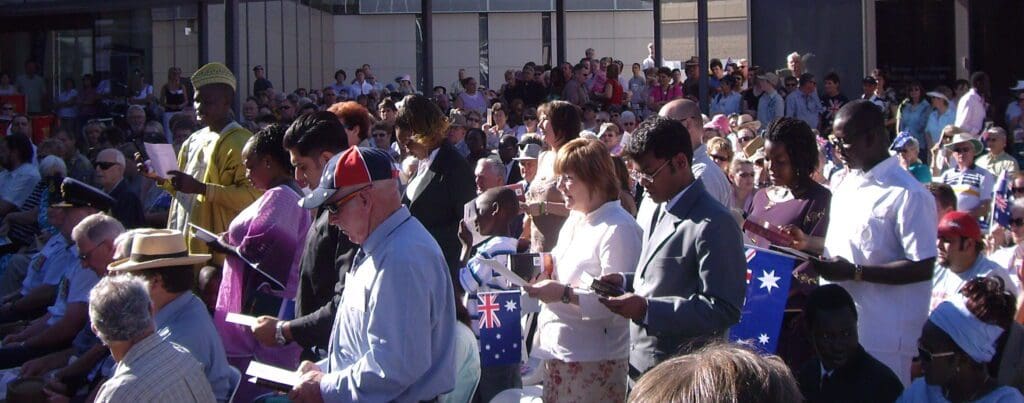Finding work in another country
If you are a Field based Engineer working in one country, how do you start finding work and a new job in another country?
What makes the ideal candidate for finding work and getting a job in another country?
It varies depending on the industry and country, but there are some common factors.
If you are a Field based Engineer working in one country. How easy is it finding work in another country?


Ideal applicant for a role in another country – how much of this is you?
Right to work
Already has or doesn’t need a work permit or qualifies for an ancestry visa or fits the criteria for the work permit application process (can check on the relevant government website).
Relevant Experience
Previous experience in an identical or similar job, or a job requiring identical or similar skills and technical knowledge.
Language skills
a. Good level of the language needed for work (often English but not always), ideally proof of language level in a Language Certificate showing your level on the
Common European Framework of Reference for Languages (CEFR) or IELTS.
b. Knowledge of or learning the local language if different.
Experience in a field which has a short supply of workers.
Financially able to self-support the visa process (Not all companies will pay for obtaining a work visa). Visa processes often require proof of bank savings.
Current or previous experience working for a well-known global company in the role you are applying for.
If you don’t have experience working for a major or known corporation and have only worked for small locally based companies; it will be more difficult for HR departments of overseas companies to judge/evaluate your experience and seniority. So maybe try and get a job with a large or international company before you try moving internationally.
Willing to work in a more junior job which is not as skilled as current one in order to re-qualify or pass local accreditations.
You have some particular education or experience which sets you apart.
Skilled at online interviews.
Able to convince an employer that you are ready and able to move as soon as required.
Persistent, optimistic and organised.
Current company
If you are already working for an international company, many global companies will not allow international transfers to locations where you will earn a higher salary. You may need to change companies to obtain a relocation. Then once you are in the new location, you could apply to your former company as a local applicant.


Studying overseas
You could enrol on an overseas Masters’ degree or similar course, which includes a work placement and/or a work permit once the course is completed. Can you fund this?
Things to decide before finding work in another country
Do you have family support?
In addition, if you are planning to move with family, are they as keen as you?
Alternatively, if you are moving without family, have you thought about the implications of this?
Do you want to move permanently or long term or is this just a short-term plan?
If you do want to return to your home country after a period of years, are you going to be as employable or more employable than now? Check that the experience you will get overseas will be of benefit.
Do you need a work permit? Can you get a visa? Use the official government websites before using anything else. Also, if you want to use a private company to help you, check, doublecheck and check again that they are genuine before you pay them anything.
Do you need a licence? What are the regulations and how prohibitive is it?
Are your academic or industry qualifications transferable? Qualifications may be transferable to some countries but not to others, so a lot of research is needed.
Long term or short term
Some countries have work permits which are very limited and don’t lead to long-term stays or residency. Some countries do not permit partners/spouses/families to be included on the visa. Whilst some other countries have work permits which can lead onto residency and even nationality and can include family members.


Your CV/Resume
A CV/Resume is a very personal document and is written in the style expected by a particular industry and a particular country. Once you start to apply internationally, you need to rewrite your CV/Resume and consider:
Is it written in the style that the country you are targeting are expecting?
Have you included things they would like to see?
Is your language clear especially in terms of vocabulary – are there alternative words?
Check local requirements – for example in Germany you need a photo with your application, in the USA no photo should be included. Some countries will ask for gender, marital status etc. whereas in others it is illegal to ask this.
If you are making applications to more than one country, you will need a different style of CV/Resume appropriate for the country you are applying to.
Where to look when finding work in another country
Online job boards, networking sites
Trade magazines
Company websites
Friends, colleagues, family
Engineers working in a similar field in the country you are targeting
Further information within The Field Engineer community
Finding work in another country – a group to support engineers who are searching for a job in a different country
HR Department Perspective – Q and A group for members to reach out for career advice from HR experts
Three things are certain in life – death, taxes, and a shortage of Field Service Engineers


Responses